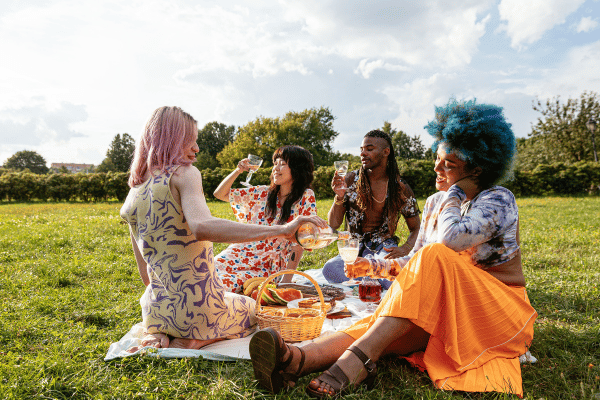
We can all agree this winter has been long and gloomy, and the bills have been painful on our wallets. But at last, it is time to start toasting under the sun again. We think it is no coincidence that Spring arrives during Earth Month. It almost feels like the universe is allowing us to reconnect with nature. So how to better live in harmony with Mother Earth than with an eco-friendly picnic? You just need to round up your group of friends or family.
We will give you a few picnic tips to enjoy that bucolic scene surrounded by green that we all have in mind. First of all, two things need to be taken into account when planning your perfect picnic day: a desirable location and the basic supplies you will need to bring.
Since there is an abundant pool of picnic locations to choose from, the answer as to where you should go rests on your own and the likings of the people joining you. If you are the kind of person that values privacy and a breathtaking view, then a secluded spot in nature will be the way to go. A forest campground with an open spot to set your picnic or a wilderness trail in the mountains will do the trick. Although sadly, the latter is tricky to find here in the Netherlands. Or, you might be one of those lucky people living next to the coast, where a hidden beach coven will grant you that yearned solitude. Regardless of your desired spot, bringing suitable footwear and packing light will be essential to have enough energy to enjoy the rest of the day once you reach your destination.
Then again, being surrounded by other picnickers or a more accessible location to enjoy your picnic might be what you are looking for. An excellent way to meet like-minded people, by the way. Then parks and lakes will allow you to enjoy these without getting too far from urban life. On top of that, they are very easy to find just by looking at a city map. Once you have picked your location, it is time to look for a spot with access to water and shade to avoid overexposure to the sun.

This brings us to the next step in planning your day, the gear. The first item is the foundation to build a comfortable space, an eco-friendly picnic blanket. Preferably one that is waterproof, to easily clean afterwards. Another indispensable item is sunscreen. You really want to avoid sobbing in pain when turning on your bed at the end of the day. Great to complement your skin protector are our stylish and shielding bamboo sunglasses. In addition, wet wipes can be a convenient item to bring, as well as a pocket first aid kit in case of injuries. Lastly, a legitimate picnicker will always have Mother Nature in mind and bring a trash bag to leave the place the same way it was found, or even better, inspire others to do the same.
Of course, we must remember the one thing without which a picnic would not be a picnic, food! You might be tempted to bring some delicacy that took you hours to make, but let’s be honest, it will not be very practical. So instead, sandwiches, pizza or quiche, which you can keep sustainably fresh with beeswax, will be at the top of the list. However, you might want to enjoy a plate of pasta or a salad with our wonderful bamboo cutlery, and that is completely fine.
Here are some ideas so you don’t have to rack your brain. For the aperitivo, vegetables cut in slices with hummus to dip in will add protein to the meal. For the main course, a sandwich with jam and cheese or mozzarella, pesto and dried tomatoes will be easy to prepare. Another option could be a broccoli and Roquefort quiche or one with zucchini, eggplant, onion and grated cheese. And some delicious homemade cookies will surely have a good reception for the dessert. Or, if you want to go the healthy route, a fruit salad with pineapple, watermelon, and grapes can be very refreshing. Inviting all who join to chip in with their creations will certainly unravel into a funky feeding frenzy. However, if you do not like relishing your frenzy, you can always consider supporting local businesses.
There is no doubt that an eco-friendly picnic is the perfect occasion to spend quality time with your loved ones and renew your energies just by lying down and soaking in some vitamin D. But we can also make the most of our time and enjoy some outdoor activities. That will no doubt release some built-up tension and stress, lift your mood and guarantee a good night of sleep. You could bring a frisbee, football or slackline and a deck of cards or board games to play once you get tired. If you have decided to spend the day surrounded by nature, hiking and enjoying the scenery could also be fun. We recommend bringing a book to read when things get calm and a portable speaker to create a relaxed ambience and even meditate.
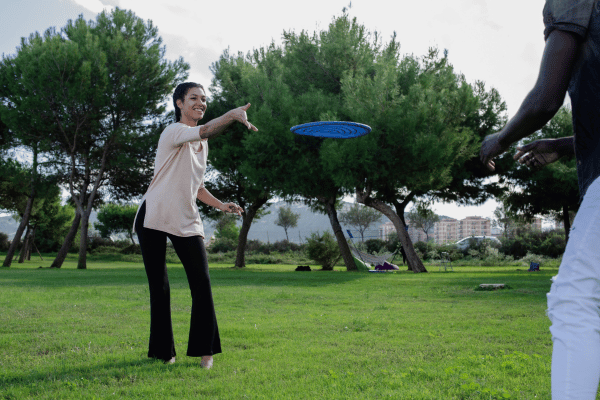
Regardless of what you decide to do in the end, remember to take the pressure off and enjoy some quality time with your loved ones in harmony with nature and away from the tentacles of consumerism. We encourage you to plan your eco-friendly picnics during this beautiful time of the year and share your experiences with us on Instagram and Facebook.

What are your thoughts on coffee? Jackie Chan claims that coffee is a language in and of itself. Coffee enthusiasts couldn't agree more. A coffee-to-go is a lifesaver, especially if you leave home early, take a break from work, or go for a long city walk. But have you ever considered where your coffee comes from or how sustainable it is?
If you're interested in sustainable living, it's essential to consider the sustainability of the coffee you're drinking. So we made a list of key factors that will help you find out:
Coffee grown sustainably and ethically offers better livelihoods to those who cultivate and process it while protecting the environment. It enables a transparent coffee chain by involving those who add real value to the bean-to-cup journey. As a result, both the impact of your cup of coffee and the lives of coffee farmers are improved. To help you choose wisely the next time you buy coffee, consider the Fairtrade and Rainforest Alliance certifications.
You might be shocked that even fair-trade coffee's eco-friendliness can be improved. Ultimately, it all comes down to the brewing method and the amount of electricity and water required. If your coffee machine consumes a lot of energy, consider replacing it with a more sustainable alternative. An example of an easy-to-use and more eco-friendly option is the French press. It's a great place to start for those concerned about the environment. You only need a few things to make French-pressed coffee:
The coffee's intensity and flavour are well-known among French press aficionados. Another great way to make coffee with a low impact is by using a pour-over. You'll need:
These things can get you started on the path to great coffee with minimal waste. Don't worry—we did mention a filter. Paper filters are not required when making a pour-over. By investing in reusable filters, you can prevent the waste that comes with using disposable ones. There are many more ways to make the ideal brew—these are just a few to get you started.

About 3% of the carbon footprint of the entire coffee supply chain is caused by packaging. Paper, plastic, and aluminium are usually used for coffee packaging. It is harmful to the environment if plastic packaging is not correctly sourced, produced, transported, and discarded. For something to be considered truly "green," it must either be biodegradable, or the packaging must be reusable or recyclable. Rice paper and unbleached kraft paper are among the most widely used eco-friendly materials to make coffee bags. These natural substitutes are created from the rice-paper plant, bamboo, tree bark, or wood pulp. Choose eco-friendly options, buy coffee with FSC-certified packaging whenever possible, and minimise your coffee’s environmental impact.
Switch to a reusable cup or mug if you accept disposable coffee cups. That way, you'll be ready when single-use plastic cups and containers are banned in July 2023.
More benefits?

There are some other creative solutions as well. For example, reusable cups made of natural rice husks rather than plastic by Huskup. Another alternative, De Koffiejongens, sells coffee cups made of corn and sugarcane, which you discard with organic waste after use. Within three weeks, their cups decompose into compost - so cool!
Enhancing the sustainability of your coffee consumption is possible in a variety of amazing ways. So, next time you're going for a takeaway coffee on a cold winter day, pause to think about how eco-friendly it is. Spread the love for sustainable coffee by sharing this article! For additional tips on building a sustainable and eco-friendly lifestyle, visit the Bamboovement blog.
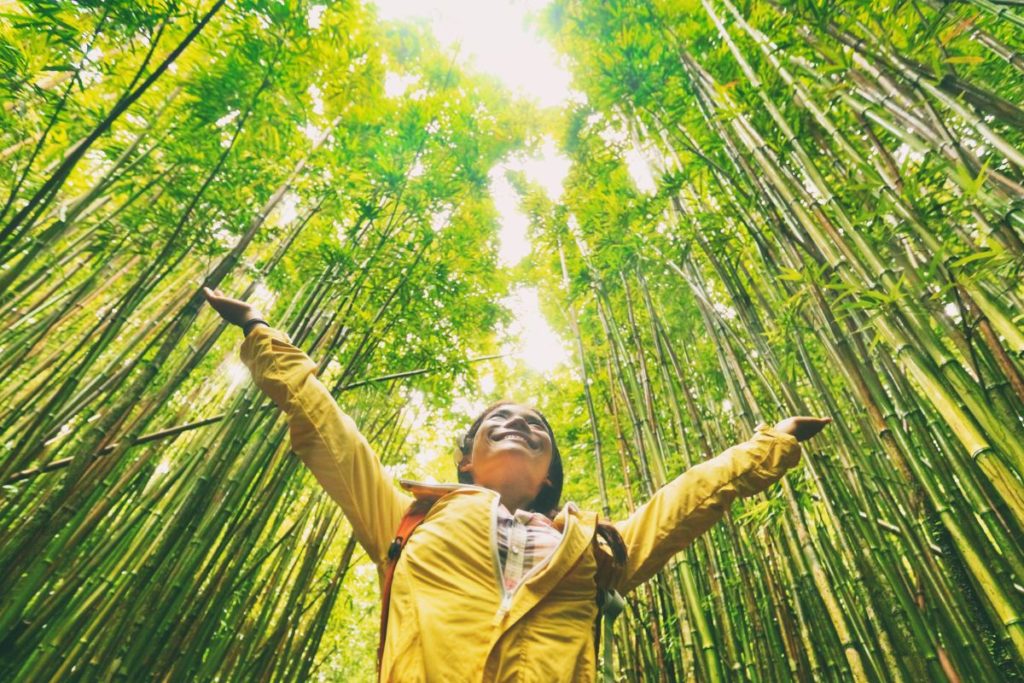
The story of bamboo starts with the plants themselves. Over the past decade, the popularity of bamboo has increased to create materials and products that offer competitive sustainability like never before. Bamboo, a type of grass, is used to make many products, from furniture to clothing. As a result, it has many advantages when it comes to sustainability and living a healthy lifestyle.
Bamboo is a symbol of strength, flexibility, and growth.
Bamboo can grow up to 36 inches in 24 hours and is one of the world’s fastest-growing plants. It can also be grown without pesticides or fertilizers, which makes it an environmentally friendly choice for sustainable living.
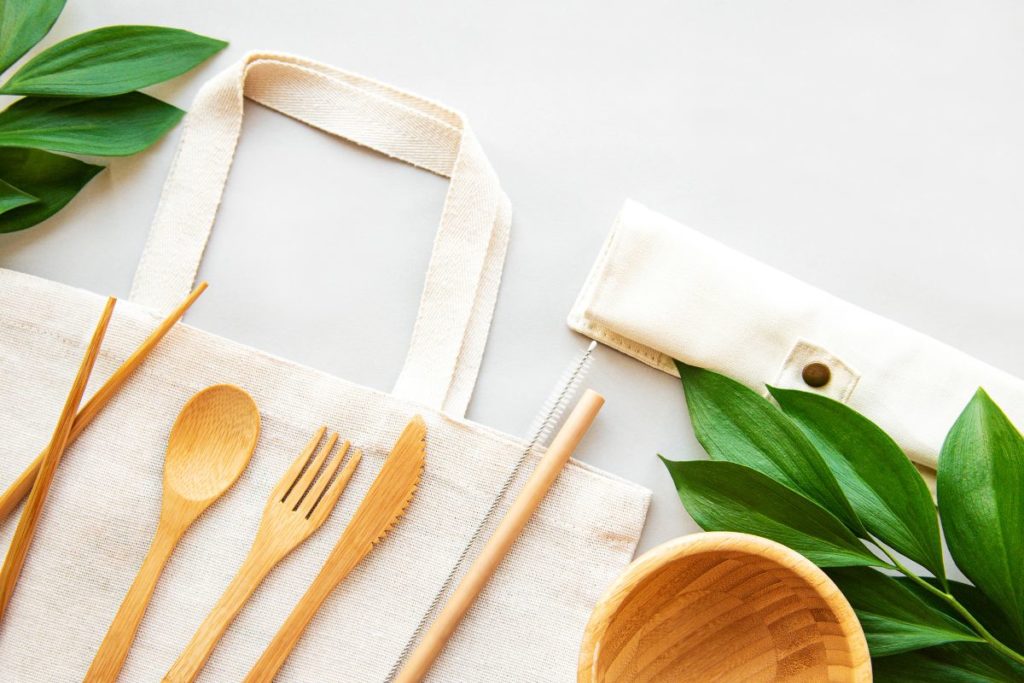
There are many bamboo products, from furniture to clothes to even food! In fact, bamboo has been used as an ingredient since ancient times in Asia. It contains more than twice the amount of protein that other plants do.
Bamboo is hypoallergenic, antibacterial, and anti-fungal, and it has only recently been employed in personal care products. Bamboo has been popular due to its natural features as a sustainable resource that neither damages the environment nor human health. Bamboo fibers do not contain natural resins, so they do not have the same potentially harmful side effects as synthetic resins. Bamboo is environmentally friendly and biodegradable. All of this makes it an excellent substitute for many other materials found in personal care products.
"The use of bamboo as an alternative to plastics has been increasing with the discovery of its natural properties."
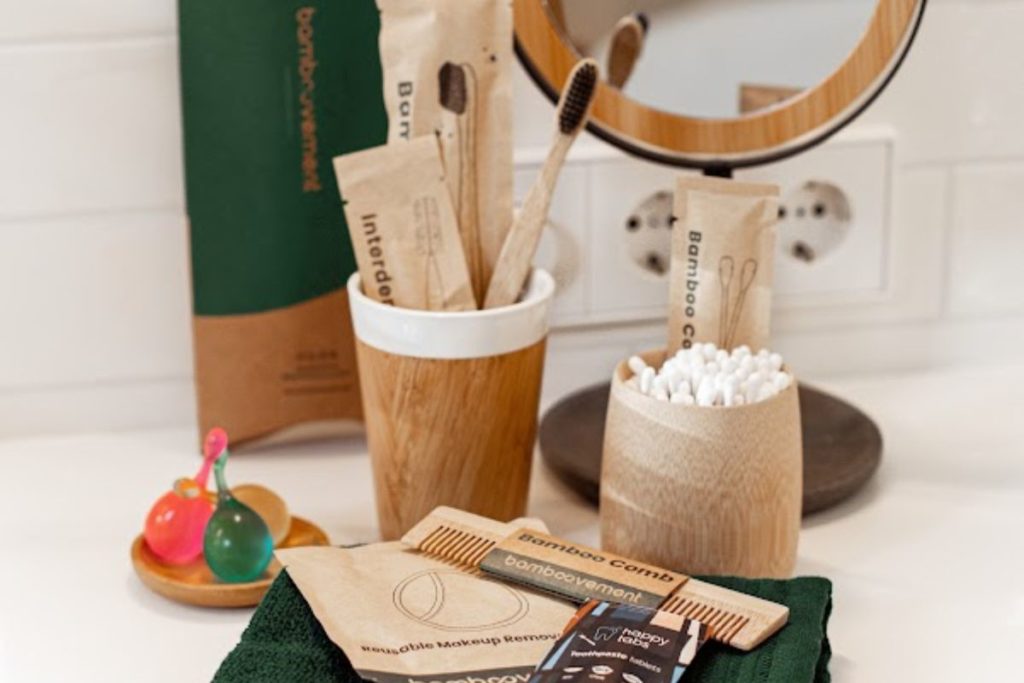
At Bamboovement, the story of bamboo has inspired us. We offer a solution to plastic pollution by replacing disposable, daily-used plastic products with eco-friendly alternatives. All of our products are created in harmony with nature. Most of them are from Moso bamboo, which can grow up to one meter per day in optimal conditions. We have tried and tested our items. Our bamboo toothbrush, for instance, has FSC certification.
Together with like-minded people, we work on innovative ideas to rid our world of plastic waste every day. Bamboovement is a global movement inspiring people to choose personal care products that protect our planet. We are grateful to many people who want to make our planet cleaner and greener.
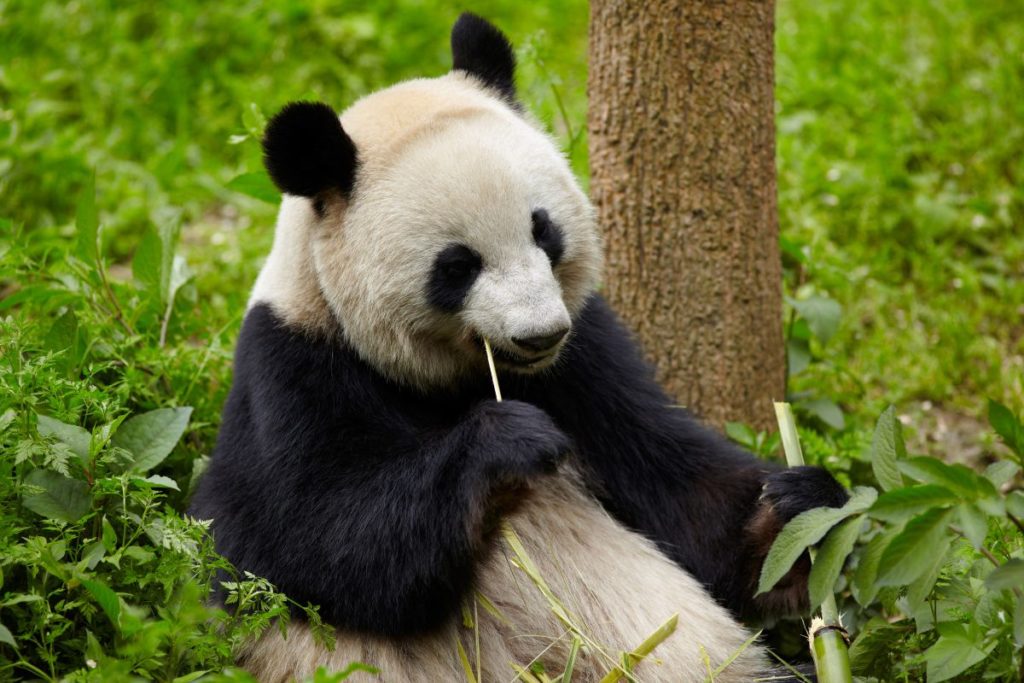
“Life is better with a panda.“ We love pandas and their big eyes!
For the love of pandas, we can assure you that Bamboovement is completely safe for these adorable creatures. They prefer eating the leaves low to the ground, while the leaves of Moso bamboo grow too tall and are unreachable to them.
In terms of packaging and shipping materials, we strive for maximum sustainability with the lowest environmental impact. That’s why we ship our parcels in recyclable cardboard packages with paper tape and minimize their impact by planting a tree for every single one!
Our goal is to offer a complete climate-neutral product range. To learn more about our sustainability initiatives, check out the Tree Planting Project.